Peacemakers Network at the 25th Anniversary of the UN Security Council Resolution 1325 on Women, Peace and Security (WPS)
October 2025
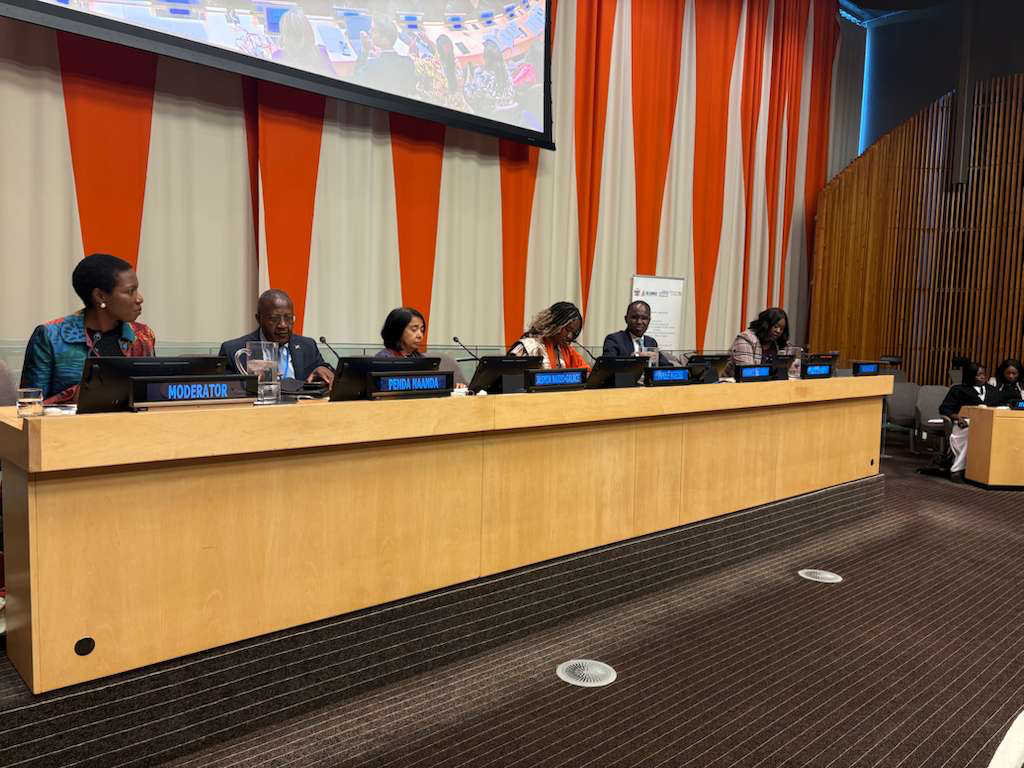
Second Event Panel, From Left to Right: Ms. Harriette Williams Bright, WPS-HA Compact Lead and WPS Focal Points Network Secretariat Coordinator for UN Women as Moderator; Ambassador Penda Naanda, Permanent Representative of Namibia to the United Nations in New York for Closing Remarks; Ms. Jasmin Nario-Galace, Senior Program Director, Global Network of Women Peacebuilders (GNWP); Ms. Mpule Ngetsi, African Youth Ambassador for Peace; Dr. Mohamed Elsanousi, Executive Director of the Network for Religious and Traditional Peacemakers; and Ms. Helena Kuzee, Deputy Director, Ministry of International Relations and Trade for Namibia as Moderator.
2025 marks the 25 anniversary of the UN Security Council Resolution 1325 on Women, Peace and Security (WPS), the landmark resolution that emphasizes women’s participation in peace negotiations and conflict resolution, their protection from gender-based violence, and the incorporation of gender perspectives into peacekeeping and peacebuilding efforts.
In recognition of the 25th anniversary, Namibia convened a commemorative event in partnership with Compact Signatories as Chair of the Board of the Women, Peace and Security and Humanitarian Action (WPS-HA) Compact. The event, co-hosted by UN Women and the African Union, was titled ‘The Power of WPS: Advancing Inclusive Decision-Making in Peace and Security.’ The high-level event provided an opportunity to reaffirm the importance of women’s leadership in promoting peace and security, recognize achievements made, and foster collective intergenerational action to advance the WPS agenda moving forward.
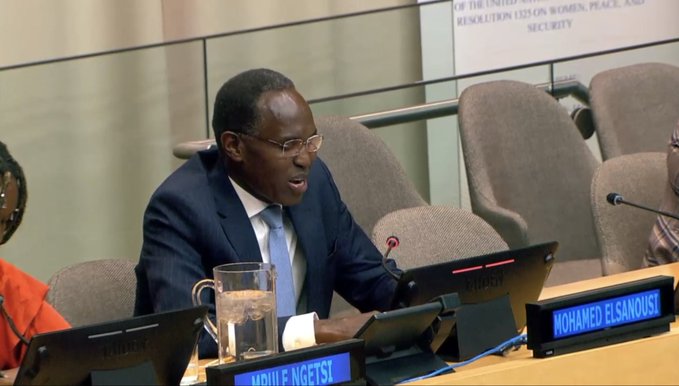
Dr. Mohamed Elsanousi, Executive Director of the Peacemakers Network, speaks about the importance of inter-network collaboration and joint capacity strengthening.
As part of the event, the Executive Director of the Peacemakers Network, Dr. Mohamed Elsanousi, spoke on the role of networks in advancing the WPS agenda. “To advance peace and security, we must be bold and innovative, rather than rely solely on mechanisms of the past. This makes collaboration among diverse networks, such as the Network for Religious and Traditional Peacemakers, women’s networks, and the Compact, more essential than ever,” Elsanousi stressed.
In looking to the next 25 years, Dr. Elsanousi shared three critical areas that networks should focus on strengthening the implementation of UNSCR 1325:
- Build intersectional alliances and partnerships for joint advocacy and accountability;
- Amplify local voices globally;
- Prioritize joint capacity-strengthening.
The event also featured high level remarks and insights from practitioners and esteemed panelists.
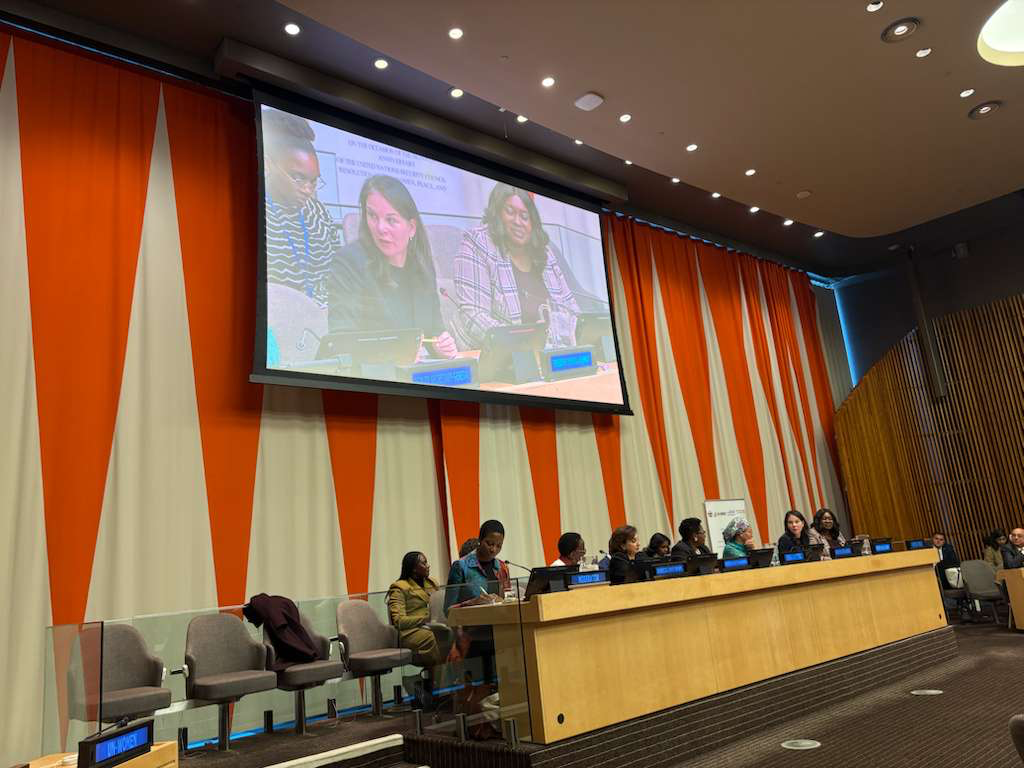
Ms. Annalena Baerbock, President of the 80th session of the United Nations General Assembly, shares strides in the WPS agenda during her opening remarks.
Ms. Annalena Baerbock, President of the 80th session of the United Nations General Assembly, spoke on the urgent need for action, stressing that this is a critical time for women’s rights and the WPS agenda. Despite facing opposition, she stated, “We are many, we are here, and we will stay.” Baerbock further noted this is not just about women’s security, but human security, as there will never be security if women are excluded. She also highlighted some of the advancements made to lift barriers to women’s engagement in peace and security over the past 25 years, including the adoption of the Pact for the Future and 130 National Action Plans aimed at promoting the WPS agenda. Baerbock emphasized women’s active and multifaceted role in peace and security, calling for enhanced support and stating, “Women are peacekeepers; women are mediators; women are overcoming victimization to support and lead.”
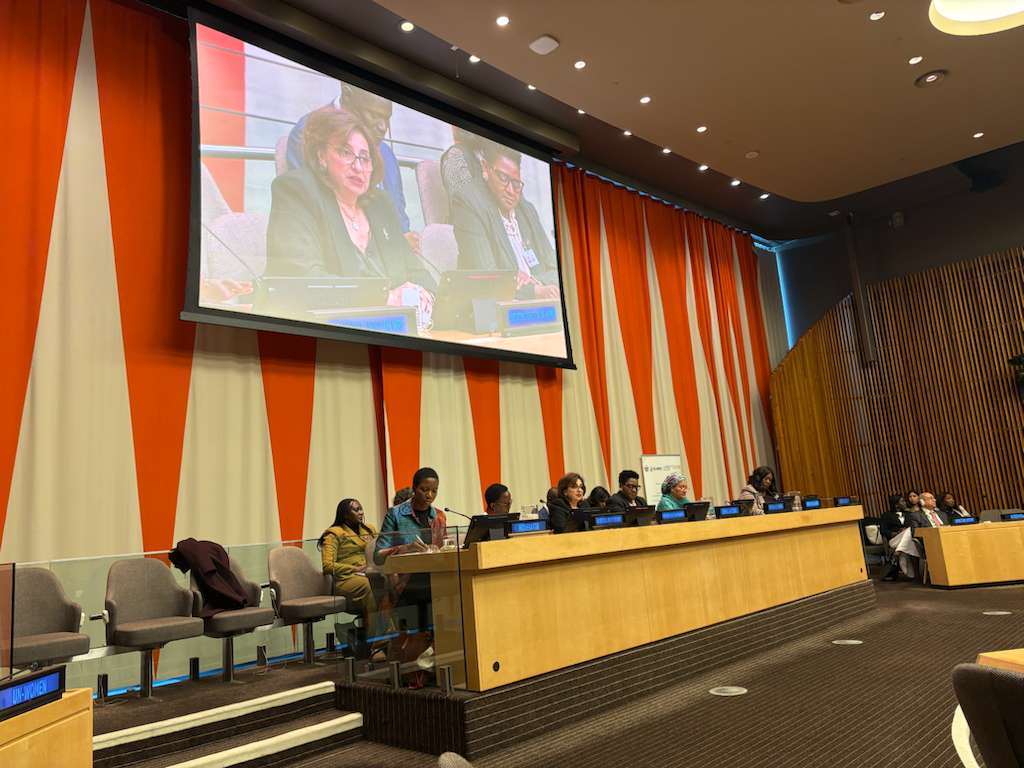
Ms. Sima Bahous, UN Women Executive Director, reflects on the 2025 UN Secretary-General’s report on Women, Peace and Security and the WPS-HA Compact in her opening remarks.
In her address, Ms. Sima Bahous, UN Women Executive Director, commended the remarkable success of the WPS-HA Compact, highlighting its impressive array of signatories. Bahous then reflected upon key findings from the 2025 UN Secretary-General’s report on Women, Peace and Security, including a new unwanted record of 676 million women now living within 50 kilometers of deadly conflict. She warned that women and girls continue to be excluded from peace processes, with only 20% of signatories on peace and security agreements being women. Incoming funding cuts will worsen this situation. Bahous emphasized that the WPS-HA Compact is the way to move forward together and that UN Women is advocating for it. This advocacy includes earmarked funding to properly finance peacebuilding and women-led recovery, using quotas, targets, and other markers to ensure accountability. In a resonant call to action, Bahous affirmed that women must remain at the heart of the peace and security agenda, stating, “Our task is daunting but we remain undaunted… we must remain unstoppable.”
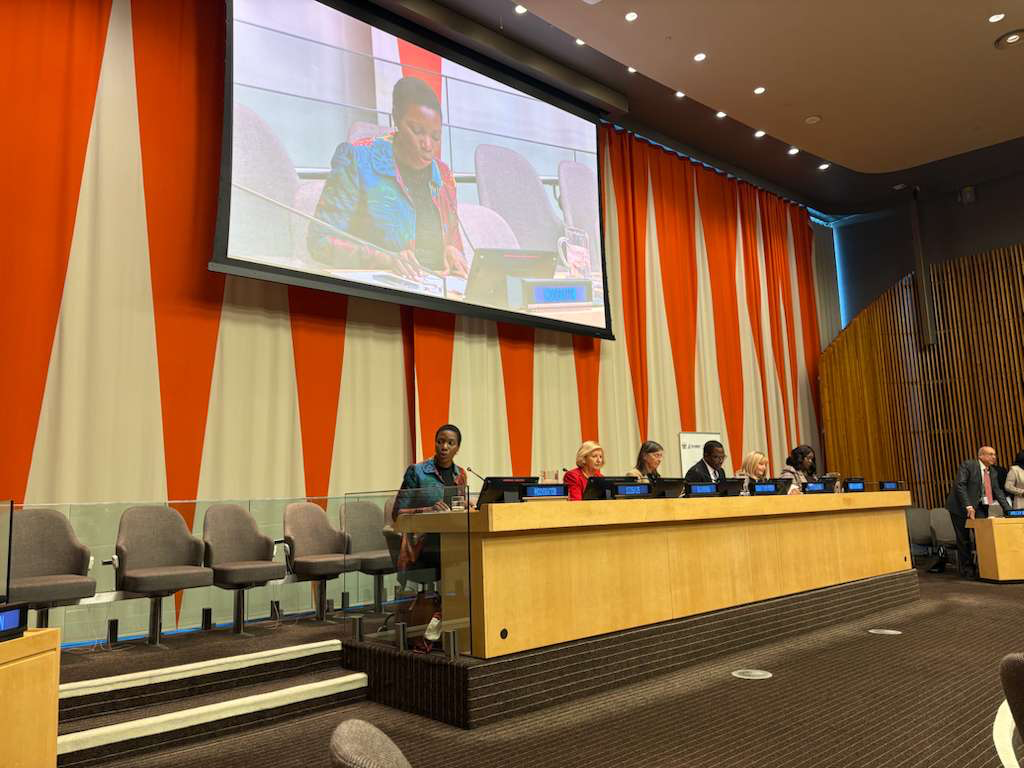
Ms. Harriette Williams Bright, WPS-HA Compact Lead and WPS Focal Points Network Secretariat Coordinator for UN Women, introduces the first panel with a call for accelerating the WPS agenda.
As part of the panel, “Harnessing Networks to Drive Cross-Regional Actions on WPS,” esteemed panelists shared reflections on strengthening women’s networks through collaboration and meaningful inclusion. Ms. Mpule Ngetsi, African Youth Ambassador for Peace, highlighted the value of intergenerational collaboration, referencing convenings such as FemWise-Africa and the Panel of the Wise, which aim to ensure that young women are systemically embedded through intergenerational leadership. Ms. Jasmin Nario-Galace, Senior Program Director for the Global Network of Women Peacebuilders (GNWP), then stressed the importance of the WPS-HA Compact as an accountability bridge that amplifies women’s courage and empowers them to shape global policy by “making the local global and the global local.” To close the panel section, Madame Bineta Diop, Co-Convener of the African Women Leaders Network (AWLN), underscored the need for increased investment in accountability and called for women to be involved in designing new frameworks, including those for UN80 reforms, to integrate peacebuilding across diverse contexts effectively. She urged the transformation of Resolution 1325 from a normative framework into a transformative process driven by women, asserting, “Defending women’s rights means defending our humanity.”
In his closing remarks, Ambassador Penda Naanda, Permanent Representative of Namibia to the United Nations in New York, highlighted the 25th anniversary of Resolution 1325 as a pivotal moment for reflection on the achievements thus far. He stated, “This agenda cuts across borders and resonates in the hearts of many in the global community.” Amb. Naanda emphasized the importance of supporting peace and stability while promoting empowerment and equality, particularly for those affected by conflict. He called for a commitment to another quarter century of “seeing ourselves as peacemakers and bridge-makers,” assuring that when women build, peace follows.
Follow the Peacemakers Network on social
